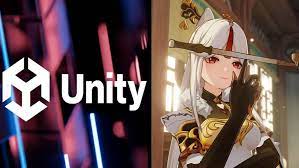In a move that has taken the gaming world by storm, Unity Technologies, the company behind one of the most popular game development platforms, has introduced a contentious change to its pricing model. This decision has not only ruffled the feathers of individual developers but has also united the entire gaming industry in its criticism.
The New Pricing Model: A Deep Dive
Unity’s new pricing model revolves around a “per-install” fee. Previously, developers could use the Unity engine without worrying about the number of installations their game received. However, with the recent change, Unity has announced that developers will be charged based on the number of game installations. This has particularly alarmed indie developers, who often rely on a high volume of installations to gain traction.
The initial announcement suggested that every game installation would incur a fee. This led to concerns about potential exploitation, where players could deliberately delete and reinstall games, thereby increasing costs for developers. Unity later clarified that only the initial installation would be charged, but questions remain about installations across multiple platforms.
Furthermore, Unity’s approach to piracy raised eyebrows. The company claims to have its own fraud protection technology to prevent developers from being charged for pirated copies of their games. However, the efficacy and reliability of this system remain to be seen.
The Industry’s Backlash
The gaming community’s response to Unity’s decision has been overwhelmingly negative. Many developers have expressed their dismay on social media platforms, with some even considering migrating their projects to other platforms like Unreal Engine to avoid Unity’s new pricing structure.
Brandon Sheffield, an indie game developer, went as far as to title his article on the subject, “The Death of Unity.” Such strong sentiments underline the depth of the industry’s discontent. Sheffield’s sentiments were echoed by many, including TinyBuild CEO Alex Nichiporchik, who expressed skepticism about Unity’s decision and its potential implications for developers.
Unity’s Defense
In response to the widespread criticism, Unity has attempted to provide clarity on several points. The company emphasized that the new pricing model aims to establish a fair exchange of value between Unity and its users. Unity’s Marc Whitten, Unity Create president, acknowledged the change but emphasized that it would not impact the majority of their customers. He stated that the new fees are aimed at those who have achieved significant scale in terms of downloads and revenue.
The Bigger Picture
Beyond the immediate financial implications, Unity’s decision has broader ramifications. The trust between Unity and its user base has been shaken. Developers invest time, resources, and energy into creating games on platforms like Unity, and sudden, fundamental changes to the pricing structure can jeopardize their projects and financial stability.
Moreover, Unity’s stock has reportedly declined by 5% following the announcement, indicating the broader market’s reaction. There are also reports suggesting that some high-level executives at Unity sold stock just days before the public announcement, further complicating the narrative.
Conclusion
Unity’s recent pricing change has undoubtedly stirred the pot in the gaming industry. While the company has its reasons and has attempted to clarify its stance, the overwhelming negative response from the developer community is a clear indication of the depth of discontent. The long-term implications of this decision remain to be seen, but one thing is clear: Unity’s reputation has taken a hit, and it will take significant efforts to rebuild the trust that has been eroded.
As the situation continues to unfold, developers, industry stakeholders, and gamers alike will be keenly watching Unity’s next moves. Will they reconsider their decision in light of the backlash, or will they stand firm, potentially reshaping the landscape of game development?



